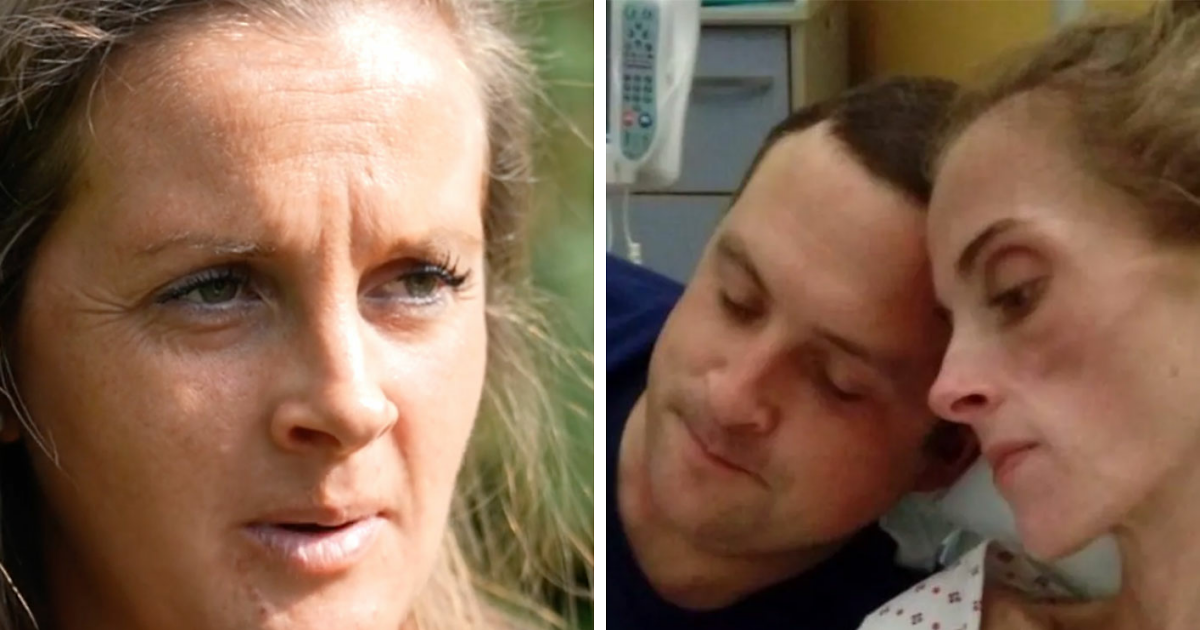The rise in newborn deaths from congenital syphilis is prompting an urgent warning from health officials.
The once ‘rare’ cause of infant mortality has more than tripled in recent years, with 3,882 cases reported in 2023. According to the CDC, this is the highest number of cases of the disease since 1992.
During that year, there were 279 congenital syphilis-related stillbirths and infant deaths. Of those, 252 were stillbirths, an increase of 6.3 percent since 2022.
And the national congenital syphilis (CS) rate of 105.8 cases per 100,000 live births in 2023 represents a three percent increase from 2022.
Doctors believe the rise is being driven by pregnant women not receiving prenatal care and testing, as well as not following up with treatment after testing.
Pregnant women’s sexual partners who don’t receive sexually transmitted disease (STD) screening or treatment also contribute to the rise.
Forty-three percent of birth parents did not receive syphilis testing during their pregnancy and 23 percent were not treated for a positive case. This contributed to almost 90 percent of congenital syphilis cases across the US in 2022.
Most recently, New York recorded three deaths from CS, but it isn’t the only state with increasing rates of both syphilis and congenital syphilis. The nation’s top five syphilis hot spots include South Dakota, New Mexico, Mississippi, Arizona, and Texas.

Cases of congenital syphilis have more than tripled in recent years, with 3,882 cases reported in 2023 (stock image)
These also have the highest rates of CS per 100,000 live births, according to the most recent CDC data. New York was ranked 40th.
The third infant death marked the 21st case reported in New York counties this year, excluding New York City. There were 35 cases in New York City in 2023.
Now, New York state officials are calling for mandatory blood test screenings for pregnant mothers.
New York State Health Commissioner Dr James McDonald said in a statement last week: ‘No baby should die from syphilis in New York State or anywhere in this country.
‘Detecting syphilis early in pregnancy with a simple blood test is important to ensure rapid diagnosis and treatment, so you have a healthy baby.’
Syphilis is an STD that causes skin rashes and sores.
Primary syphilis sores begin at the infection site such as the mouth or genitals. Secondary syphilis rashes appear on the hands and feet.
Congenital syphilis is passed from the pregnant mother to the fetus.
The infection can cause symptoms such as bone deformities, jaundice, rashes and lesions. There are an estimated 1.5million cases of congenital syphilis each year, according to the World Health Organization.
However, both syphilis and CS are preventable by using condoms during sex and can be treated by the antibiotic penicillin. When left untreated, CS can lead to neurological problems, premature and stillbirths, and afterbirth death.

The above is a visualization through 2022 of CS cases in the US
Health agencies have recommendations for syphilis testing, providing self or at-home STD tests to expand the options for pregnant women.
Every state recommends a test in the first trimester, 18 states recommend it for the third, and nine recommend it post-birth.
Only eight states mandate syphilis screenings after delivery.
Dr Sharon Nachman, Chief of the Division of Pediatric Infectious Disease at Stony Brook Children’s Hospital in New York, told DailyMail.com: ‘The problem is the pregnant patients receiving prenatal care that don’t follow up or show for their appointments.
‘We don’t know if you were tested and perhaps tested positive for syphilis.’
Pregnant women who aren’t screened is another concern. They could be asymptomatic or have no access to STI screening.
Nearly 40 percent of pregnant women who tested positive did not receive any or adequate treatment, according to new CDC data.
The only cure for congenital syphilis is the antibiotic benzathine penicillin, which is administered by injection. And it’s currently facing a worldwide shortage.
Dr Nachman explained that benzathine penicillin is an older generic drug that is produced less: ‘No new companies want to make benzathine penicillin.’
The production of the antibiotic generates unwanted secondary products, such as bacterial residue, which are classified as hazardous waste. These byproducts are toxic and pose risks to the environment and the manufacturers.

The above is a visualization of missed opportunities to detect CS cases
She said: ‘If the byproducts making it are toxic, then even the generic companies won’t and don’t want to make it.
‘To build a plant that has a byproduct that is difficult to get rid of, and the medicine you are making costs pennies, then there is no profit in making it for you.’
Dr Nachman explained that institutions like Stony Brook Hospital have a small amount of the drug and reserve it for pregnant women only.
She told this website: ‘Any hospital that doesn’t have it on hand reaches out to other hospitals in their network to see if they can ship it.’
Dr Nachman said: ‘Of course this [shortage] is contributing to women not following up and receiving their medications, so those babies are born with syphilis.’
Congenital syphilis rates are higher in certain racial and ethnic groups. Infectious disease specialist Dr Carla Garcia Carreno of Children’s Health of Dallas, Texas, told DailyMail.com: ‘Over the years we have seen that the African American population is the most affected.
‘There may be some decreased access to contraceptive methods for that particular population.’
The highest rates are in American Indians, Alaska Natives, Black and Hispanic populations, according to the CDC.
Barriers like limited healthcare access, lack of preventative resources, limited insurance, and trouble reaching testing sites fuel the increase in cases among these groups.
Dr Nachman stressed that pregnant moms aren’t the only ones who should be STD screened. Their partners risk syphilis reinfection, as well.
She added: ‘Remember testing pregnant women is only part of the battle. If you don’t test and treat their partners too, they can certainly get reinfected.’
Source link

